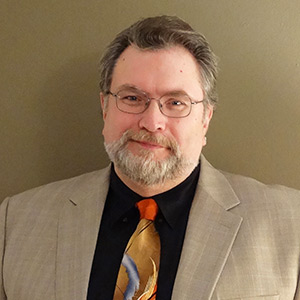
Jonathan Maberry New York Times Best-selling Author
The SDSU Writers’ Conference has a long history of bringing a star-studded lineup of publishing industry professionals to town, and the 31st annual conference – January 23-25 – delivers on that tradition. New York Times best-selling author Jonathan Maberry will draw on his nearly four-decades-long career to share how optimism and business savvy trump fear and negativity, in his keynote address, “Good Guys Finish First.”
He’s a multiple Bram Stoker Award-winning horror and thriller author; and also writes mystery, fantasy, science fiction and suspense for adults and teens. His books include Fall of Night, Patient Zero, and the Rot & Ruin young adult series. Maberry has several projects in development for movies and television, and is a popular expert on History Channel specials involving zombies, monsters and the supernatural.
Maberry’s expertise as a journalist (i.e., research), 8th degree black belt jujutsu master and former bodyguard, and intense interest in science all contribute to the utter believability of every world he creates.
He’s also a passionate promoter of literature and writing, and founded the Writers Coffeehouse – a free, monthly, three-hour networking and discussion session for writers of all genres and skill levels – on the East Coast. And as you’ll see at the conference, Maberry is a captivating speaker with a great sense of humor.
Here’s a preview.
Your first work of fiction, Ghost Road Blues, won the Bram Stoker First Novel Award and spawned a trilogy. Your first movie dramatization, The Wolfman, became your first New York Times bestseller and won the Scribe Award for Best Movie Adaptation. Do you attribute some of that success to the incredible level of research you put into everything? And where does that analytical approach come from?
Research is a key factor of success, no doubt, especially in the kinds of things I write – thrillers, horror, mysteries, and science fiction. However that’s only a factor in the performance of my books. I think a lot of it has to do with the fun I have in telling stories. I’ve been told that this sense of fun shines through in the writing. That makes me very happy. Even in darker works, I never go for the gratuitous scene or story element. I have to write the books I would most want to read, and I’ll only work on projects that I think will be fun to do.
My analytic side, though, is a factor. I was trained as a journalist and spent over twenty years doing magazine feature writing as a sideline. I did about twelve hundred features, a few thousand columns and fillers, and a couple of dozen nonfiction books and textbooks before I turned to fiction. I’m a research junkie, and I love looking for bits of science that are so new they haven’t yet been used in fiction.
Were you a prolific reader as a child? Did a particular book make a major impact?
I was always a reader. First comics, because it took an unusually long time for my parents and teachers to realize I needed glasses. And then novels. I read all sorts of books. Always have. Probably an even mix of fiction and nonfiction. I still read comics, I listen to audiobooks, and I gobble up books of all kinds. I even have an eReader so I can read while out on book tour.
You’re an incredibly prolific writer in virtually every genre – horror, thriller, science fiction, military fiction, fantasy, mystery, western, urban fantasy, humor …. How many hours a day do you write, and how do you keep the creativity flowing?
I’m a full-time working writer. I write about eight hours a day, and a little less on weekends. Right now I’m in the middle of my busiest year. I’ve already written five books this year – a 150k-word weird science thriller (Predator One), a 90k middle-grade sci-fi/horror mashup (The Nightsiders Book 1: The Orphan Army), a steampunk alt-history fantasy western (Deadlands: Ghostwalkers), a post-apocalyptic book (Bits & Pieces), and a mystery thriller for older teens (Watch Over Me). And I’ll be making headway into the second in my middle-grade series, Nightsiders: Vault of Shadows. Plus I’ve been writing two monthly comics, Rot & Ruin and V-Wars, as well as a slew of short stories. It’s been a very, very busy year. Next year will be just as crazy. Good thing I like the fast lane.
Is your discipline as a writer influenced by your extensive martial arts training?
Martial arts has been very useful to me as a writer. In jujutsu – which is the combat art developed by the samurai – you take a pragmatic and scientific approach to everything. If there is a task, you think it through, do whatever preparation is necessary, and then complete it. Then you move on. Between that training and having studied journalism, I never became the kind of writer who mythologizes the process. I don’t need to wait for the muse to come and enchant me. I don’t need a perfect setting. I’m not a prima-donna. I write. I write every day. I set word goals that are practical. I don’t try to create a perfect draft because that’s not possible, and it’s self-destructive to try. I write a draft and I fix any errors in the rewrite. And I move on. I never rewrite until the draft is complete. I listen to advice and will consider suggestions. I don’t take criticism as a personal attack.
All that said, I care deeply about the art as well as the craft. I want every piece I write to be better than the last, and I’m always looking for ways to stretch as a writer. I won’t allow myself to back away from a project because it looks too hard or because it’s outside my wheelhouse. If I don’t know how to do something, I learn how. And if something is tough, then I find the most enjoyable way to do it, so that it becomes fun.
How did your big break come about?
My break came when I landed my agent, Sara Crowe, who was a junior agent at Trident Media. Even though she wasn’t a fan of horror, she liked my business savvy and enthusiasm and so took me on as a client. Editor Keith Clayton nearly bought Ghost Road Blues for Random House, but ultimately the marketing people didn’t let him grab it because it was the lead book of a horror trilogy. So Sara took it to Michaela Hamilton at Pinnacle, an imprint of Kensington. Michaela bought it because it was the lead book of a horror trilogy. Go figure. The book came out as a paperback original in 2006 and I am just now finishing my 22nd novel, with several more already sold to the big five.
Your keynote topic at the upcoming SDSU Writers’ Conference is “Good Guys Finish First” – how optimism and business savvy trump fear and negativity. Can you give us a hint of an anecdote?
Since the economic meltdown hit publishing a few years ago, there are two basic camps. One is fear-based, and the folks in that camp seem to think that if you help another writer they’ll get the deal or take the opportunity that you’ve been craving. And so they don’t help at all. The other camp is composed of people like myself who believe that if writers help each other, then more good books will get written, more people will want to read those books, and publishing as a whole will prosper. It’s all about realizing that we’re all pulling at oars on the same boat and that by open cooperation, good will and common sense, we can steer that boat into safer waters.
I’ve read that you’ve spent an absurd amount of time thinking about how you would survive a zombie apocalypse, all of which started when you snuck into a theater at age 10 to see George Romero’s Night of the Living Dead (also the catalyst for Maberry’s Rot & Ruin young adult series). How would you distill your zombie apocalypse strategy?
I’m a very practical person and I’m also a big-picture guy. Surviving alone would be no fun and impractical. So, the first thing I’d do is organize any survivors around me, get as many durable vehicles as we could, and head to a food distribution warehouse (not a grocery store or mall). These places are strongly built, rarely have windows, have loading bays and trucks, and they have enough food to stock dozens of supermarkets. Most of them have their own generators, too. I’d clear that place, and then take foraging teams out to look for more survivors. Once we had a good number of them, I’d train them in clear-and-clean tactics to remove zombies from the area using a grid pattern. Common sense and cooperation will take you a long, long way. Luckily I have over fifty years of martial arts training to fall back on, and lots of practical combat experience from years working as a bodyguard. Stick with me, and we’ll all survive together.
Is your monthly Writers Coffeehouse coming to Southern California any time soon?
I’m in discussions with the good folks at Mysterious Galaxy bookstore to begin a West Coast chapter of the Writers Coffeehouse once they move to their new, much larger location. So, that’ll probably happen in 2015.
How close are we to seeing the film version of one of your books?
I have several projects in various stage of development. My teen post-apocalyptic zombie adventure, Rot & Ruin, is in development for film, but it’s in the very early stages. The two other projects are both headed to TV. Extinction Machine, based on my series of weird-science thrillers featuring Special Ops agent Joe Ledger was just optioned by one of the producers of The Equalizer and another producer; and V-Wars, based on a series of shared-world vampire anthologies I co-write and edit, is in development with Dexter head-writer Tim Schlattmann aboard as show-runner. We’re hoping to have both shows on TV by 2016.




